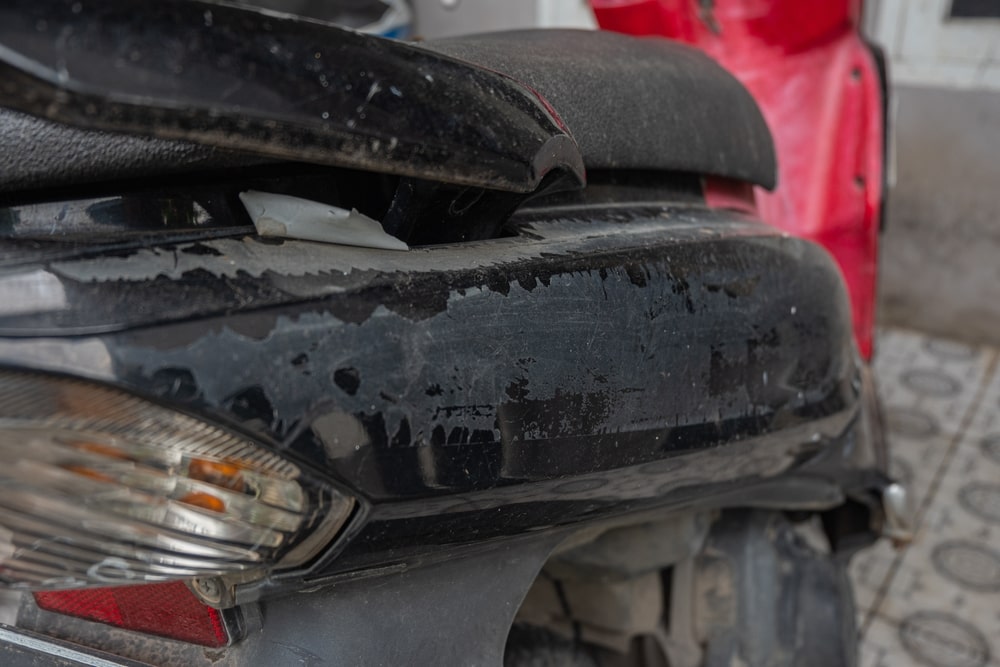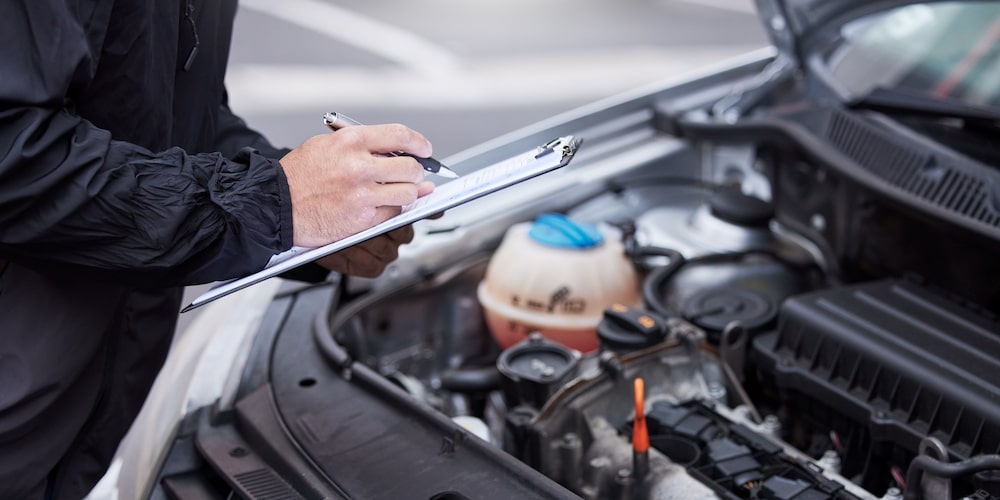When an insurance company decides to total a motorcycle following an accident, it’s often a source of confusion and frustration for owners. Contrary to what many might expect, a motorcycle can be declared a total loss even if it appears to have sustained minimal damage. The process behind this decision is deeply rooted in economic considerations rather than the severity of the damage alone.
Insurance companies assess the cost of repairs against the actual cash value (ACV) of the motorcycle, a calculation based on the vehicle’s current market value. If the estimated costs to repair the bike exceed a certain percentage of its ACV (usually ranging from 50% to 75%) the insurance company may opt to total the motorcycle instead of authorizing repairs. The specific threshold at which a totaled motorcycle is determined varies between insurers and is influenced by factors such as state regulations and company policies.
Owners dealing with a totaled motorcycle are often entitled to a settlement from the insurance company, which should reflect the pre-accident value of their vehicle. Understanding this process helps motorcycle owners navigate their claims more effectively, ensuring they are fairly compensated and can make informed decisions about their next steps post-accident. Remember that if you don’t feel you’re being fairly compensated for your fair value, 844 See Mike is here to help.
Understanding Motorcycle Valuation
When insurance companies assess motorcycles after an incident, understanding the difference between actual cash value and market value is crucial. These assessments significantly impact decisions on whether a motorcycle is considered a total loss.
Actual Cash Value vs. Market Value
Actual Cash Value (ACV) refers to the amount the motorcycle would sell for in the open market, accounting for depreciation. In contrast, Market Value can vary, often representing a more idealistic price that a motorcycle might fetch under perfect selling conditions, sometimes aligning with listings in guides or online platforms.
Factors influencing both ACV and Market Value include:
- Make and model
- Year of manufacture
- Current condition
- Mileage
- Demand for the motorcycle type
Factors Affecting Motorcycle’s Actual Cash
Several factors specifically impact a motorcycle’s actual cash value:
- Depreciation: As motorcycles age, their value decreases.
- Condition: Not just cosmetic, but mechanical fitness plays a part.
- Aftermarket Modifications: While some might increase value, others could decrease it.
- Market Trends: The popularity of certain types of motorcycles can influence their value.
When a motorcycle is totaled, insurers compare repair costs to the ACV. If the repair expenses approach or exceed the motorcycle’s actual cash value, the insurer might declare it a total loss.
Criteria for Totaling a Motorcycle
When an insurance adjuster evaluates a motorcycle after an incident, they consider certain criteria to determine if the bike is a total loss. These criteria assess the level of damage relative to the motorcycle’s worth, known as its fair market value.
Assessment by Insurance Adjuster
An insurance adjuster plays a pivotal role in dealing with a totaled bike. They inspect the motorcycle to estimate the repair costs. If these costs exceed a certain threshold of the bike’s fair market value, the adjuster is likely to declare the motorcycle a total loss. This threshold varies but typically ranges from 50% to 100% of the vehicle’s value.
Property Damage Claim Considerations
When processing a property damage claim, insurance companies also consider other factors, such as the cost of salvaging the motorcycle and potential liability issues. They must decide if repairing the vehicle is economically viable or if paying out the claimant for the fair market value of the motorcycle is more sensible. The decision to total a motorcycle also takes into account state laws and the specifics of the insurance policy covering the vehicle.
Insurance Claims and Compensation
When an insurance company deems a motorcycle a total loss, it affects both the insurance claim process and the level of compensation the owner can anticipate. These issues are particularly pertinent in cases where the damage appears minor but the motorcycle is still totaled.
Navigating the Insurance Claim Process
The insurance claim process begins when a policyholder files a claim after an accident. The insurer will then assess the motorcycle to determine the extent of the damage. If repairs cost more than a preset percentage of the motorcycle’s value, insurers may decide to total the vehicle. This decision is not solely based on visible damage; hidden structural issues can also contribute.
In this situation, policyholders may need to negotiate with insurance adjusters or seek legal advice from the motorcycle accident attorneys at 844 See Mike to ensure that the compensation reflects the true value of their lost property. If a motorcycle is financed or leased, gap insurance can offer additional protection by covering the difference between the insurance payout and the remaining balance owed, which can sometimes exceed the motorcycle’s actual cash value (ACV).
How Much Compensation Can Be Expected
The compensation for a totaled motorcycle is generally based on its ACV, which takes into account depreciation and the condition of the motorcycle pre-accident. Insurers will offer a settlement based on this value, which might not always align with the owner’s expectations.
Policyholders should understand that the initial offer from an insurance company is not final. It is possible to negotiate this offer, especially if one can provide evidence that the motorcycle is worth more. For example, recent upgrades or maintenance that adds value to the motorcycle might not be considered without proper documentation. We can help you fight for additional compensation for a situation like this.
In addition, it’s important to consider medical costs if the policyholder sustained injuries during the accident. These costs should be included in the claim to ensure that the settlement is comprehensive. However, if the accident was not your fault, pursuing the responsible party’s insurance for medical expense coverage might also be necessary.
The Role of Legal Representation From 844 See Mike
When it comes to motorcycle riders facing their vehicle being totaled with little damage, securing legal representation is a critical step. A Chicago personal injury lawyer from 844 See Mike who specializes in navigating insurance claims can advocate for the rider’s best interests. We have the expertise to assess the insurance company’s valuation and challenge decisions that may not be in line with fair market practices.
Legal professionals ensure that riders understand their rights and the intricacies of insurance policies. We will review and interpret your insurance policy details, and then gather evidence to support the claim. We will also negotiate with insurance adjusters, file legal paperwork where necessary, and represent you in court, if the case escalates to this point.
Attorneys help riders by comparing repair costs against the insurer’s assessment of the motorcycle’s value. This comparison is vital to ascertain if the motorcycle should indeed be considered a total loss.
Seeking the aid of legal counsel can also relieve the pressure on riders who might otherwise feel compelled to accept the initial assessment from insurance. Our attorneys work to level the playing field between the individual and the insurance company, striving for outcomes that reflect the actual impact of the incident on the rider’s financial and personal well-being.
Insights for Riders After a Motorcycle Accident
When dealing with insurance claims, understanding the reasons behind companies totaling bikes with minor damages is crucial for motorcyclists. The actions you take before and after a motorcycle accident can significantly impact the compensation you receive.
Protecting Your Motorcycle’s Value
To safeguard your motorcycle’s value, it is important to maintain it regularly and keep a detailed record of all services and upgrades. These records can demonstrate to insurance companies the investment you’ve made into your motorcycle, potentially influencing their decision on its value after an accident. Installing security features can also prevent theft, another scenario where many insurance companies assess the actual cash value of your bike during claims.
Understanding Insurance Policies
Every motorcycle rider should carefully review their insurance policy to understand the coverage details and the insurer’s process of determining when a bike is considered a total loss. Insurance companies often compare the cost of repairs to the motorcycle’s actual cash value. If repair expenses approach or exceed this value, they may choose to total the motorcycle to avoid costly hidden damages that might emerge later. Riders should become familiar with terms such as ‘actual cash value’ and ‘replacement cost’ to navigate post-accident procedures with confidence.
If you have any additional questions or are concerned you’re not being fairly compensated after a motorcycle accident, please contact us here at 844 See Mike.





